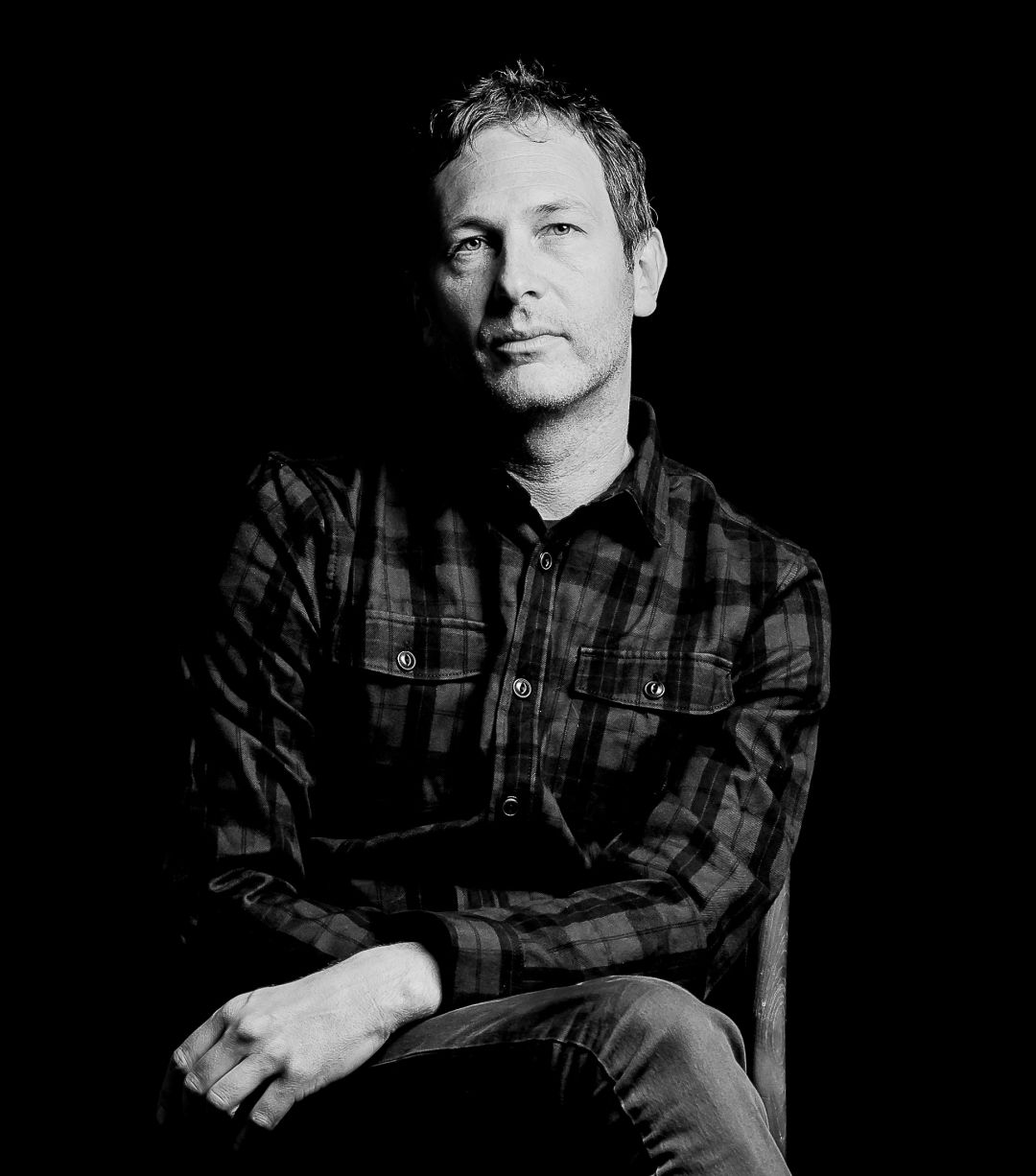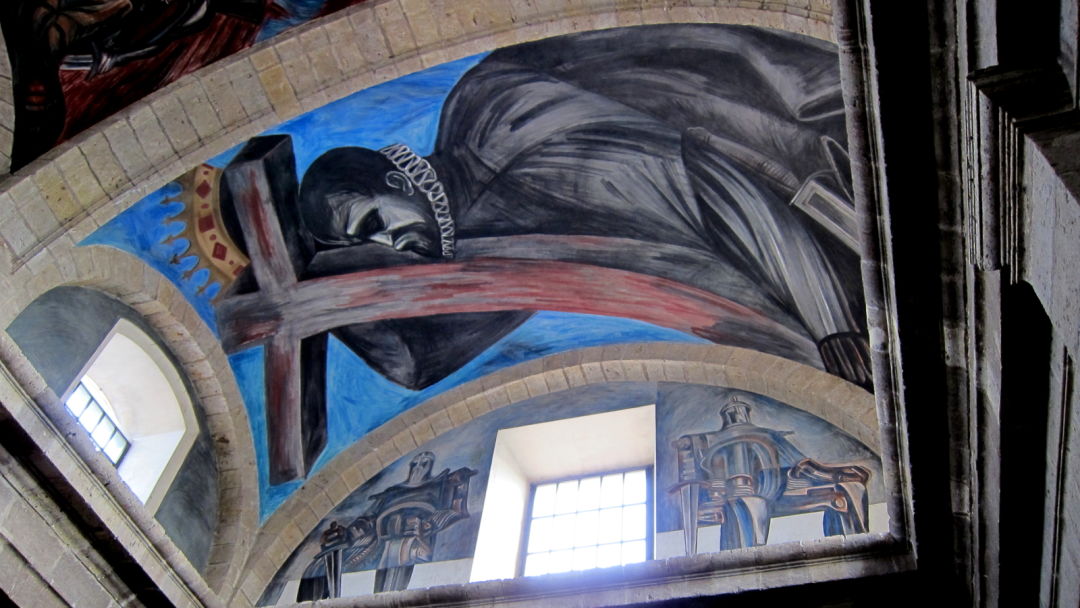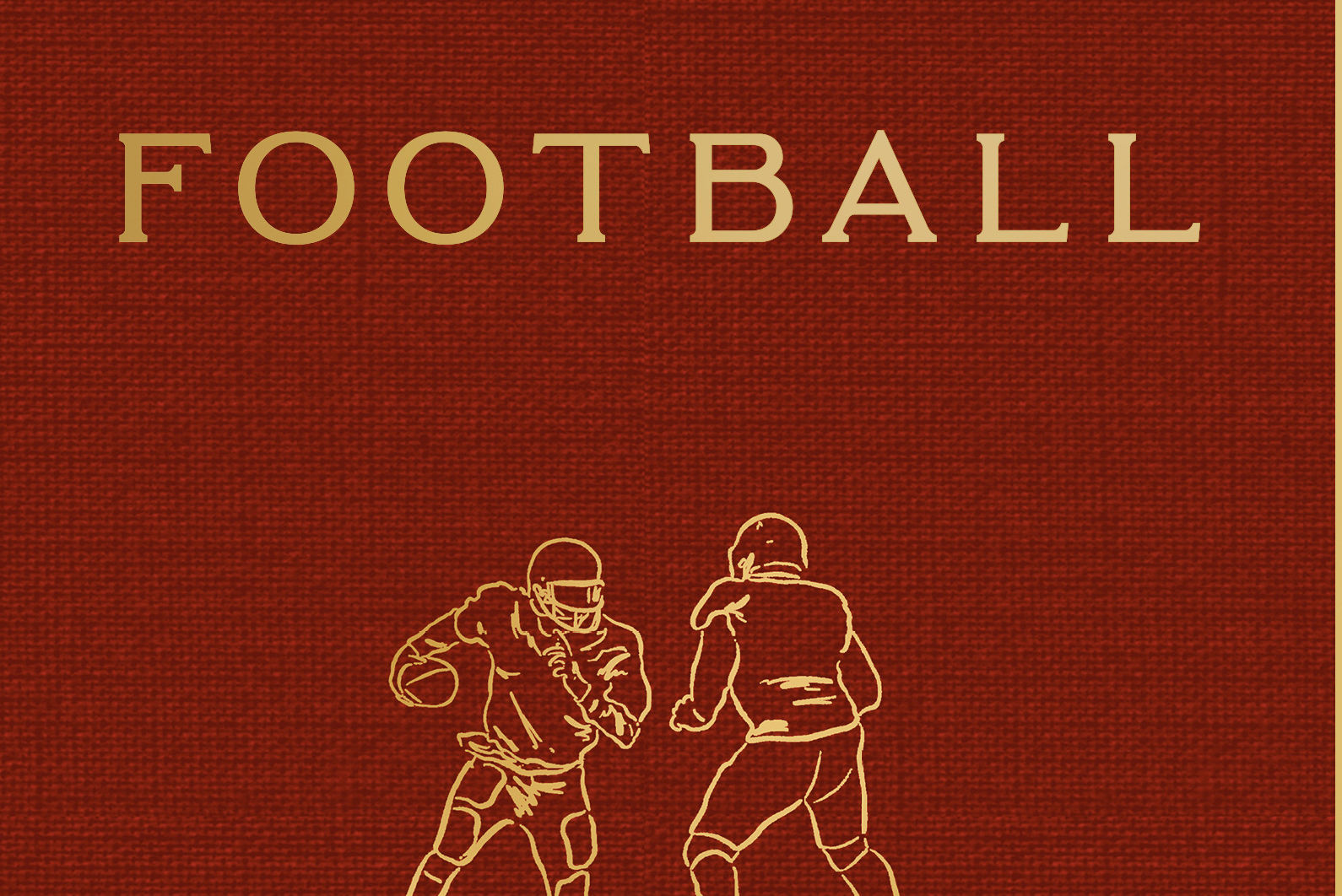Denial Presents a Compellingly Low-Key Vision of Post-Revolution Portland

Jon Raymond, author of Denial
Image: K.B. Dixon
Portland author and screenwriter Jon Raymond, responsible for films like Kelly Reichardt’s First Cow and books like 2017’s Freebird, spent early 2020 imagining our future. That’s when he cranked out the first draft of his new novel Denial—out July 26—which takes place between Portland and Guadalajara in 2052, after the public has prosecuted fossil fuel CEOs for speeding the climate crisis. It zeroes in on a reporter named Jack Henry who tracks down and befriends a fugitive climate criminal, wrestling with whether or not to turn him into the authorities.
A far cry from your run-of-the-mill slice of speculative fiction, Denial prods at post-revolutionary disillusionment and dives into the muck of "transformative change" with a defiantly steady hand. I sat down with Raymond to discuss the origins of the book, his distaste for apocalyptic literature, why Old Navy will survive the revolution, and more. Our conversation has been condensed and edited for clarity.
PORTLAND MONTHLY: When did you start writing Denial, and why? What made you want to tackle something like this?
JON RAYMOND: This concept of Nuremberg trials for carbon criminals is something that has floated around in the public sphere for a little while, and it always struck me as an interesting idea. I turned my mind to it more seriously at the very end of 2019, and then obviously, COVID hit a matter of weeks after that. I had already started working on it, but then writing conditions became extremely good and I was able to write a first draft in about six months.
What was the exercise of imagining our future like, especially at that moment?
That was the goal: to imagine a future, period. The end of 2019 was already a fairly catastrophic time, and then obviously 2020 was emergency-level catastrophes going on on top of each other, between fascism, COVID, and mega-fires. The goal was to avoid the dystopic and the apocalyptic, which are narrative modes that maybe at one time served a purpose, but at this point, have come to seem just like a wish fulfillment fantasy to me, or some sort of death trip. It doesn’t really take that much imagination. It seemed like a much more difficult project was to imagine a future that maintains human and animal life in some way.
What was the actual work of imagining that future?
There was a little bit of research. I looked into future energy sources, you know, future battery power. But a lot of it was just looking out the window. The perverse idea was that it’s just basically going to be like it is now: there will be these large movements, possibly, but as far as the day-to-day goes, people are still going to the grocery store, people are still going to go buy clothes at the outlet mall.
Old Navy survives.
Exactly. There will still be NBA basketball with a slightly expanded league. I just feel like, again, I’m so tired with that eschatological way of thinking where there will be some Year Zero that occurs, some absolute break. I was much more concerned with the continuities that would probably occur. I’ve seen Portland change over the last 40 years. There are a few more tall buildings and more shanty towns, and I assume in the next 30 years, similarly, there will be a few more buildings and more shanty towns—and we’ll still probably have a Lebanese restaurant on this corner. There’s only so much people are going to do.
I think if anything, the last two years are an illustration of that. If there was going to be a Year Zero, it would have been 2020. But here we are.
And maybe 2020 was a watershed year. History doesn’t clarify itself that quickly. To me it’s some kind of Christian fantasy that there’s going to be trumpets that sound at some point. Anyone with even a slim grasp of history understands that the emergency is always happening, and in many ways, our current crises—barring the environmental one—are not that extreme compared to previous eras. We’re not close to the first half of the 20th century in terms of global horror, thank god, although we’re walking down that path.
I know a lot of your stuff is set in Portland because you grew up here, but what drew you to Guadalajara as a secondary setting?
I wanted to go there specifically for the José Orozco murals [that the main characters visit]. After high school, I drove around Mexico with a friend, and we landed in Guadalajara at one point, and I saw those murals, which exist as-described in the book in an old, small Spanish cathedral. It was one of those encounters that at the time I didn’t realize would be so formative, but over the years, I’ve never really stopped thinking about them. There was a darkness and historical theory to those murals that have become a certain compass for me over the years as far as thinking about things ideological and political. I just wanted to get the characters to go there and experience them and talk about them in the way I’ve been talking to myself about them in my head, I guess.

One of the José Orozco murals Denial references at Hospico Cabañas in Guadalajara
Image: Cultivar413/Flickr
Talk about building the character of Robert Cave, the fugitive CEO. His hobby paintings reminded me of George W. Bush.
One of the interesting things about the climate problem is that it’s hard to draw lines of guilt and innocence or virtue and non-virtue, as opposed to systemic racism or something. It was fun to create a villainous character who’s only blurrily different from the protagonist; I didn’t want him to be some evil guy with a lap cat who had performed horrible deeds. Making him a Sunday painter was my way of softening him, and you caught on, they look very much like George W. Bush’s paintings. I always found it funny that W. and LBJ were two war criminals who took up painting in their later life. I’ve often thought a lot of death could have been averted if they just found their muse earlier.
Jack, the protagonist, also ends up bonding with Cave over their shared love of Mark Twain. What made you use Twain to link them?
I found the durability of Twain in the American imagination to be interesting. Part of the optimism I was trying to project was that people still read books, that there’s still a literary impulse to people and there are certain texts that will certainly continue. I very much assume that in 30 years, people will be reading Mark Twain. It’s another complaint I have with science fiction in so many ways: there’s so much willful forgetting of the cultural foundations everything is built on. And then Huckleberry Finn in particular, being a story of friendship and a fugitive, feathered a bit with the themes of this book. I like the idea that these two people in disguise meet and befriend each other, talking about a book in which two people in disguise meet and befriend each other.
The book is filled with political slogans like “solidarity with water” and “solidarity with air,” which are remnants from the climate mini-revolution it deals with. What was the impetus for those? How did you formulate them?
I was thinking of them as the logical extension of certain civil rights. If there was to be a movement that had the foundations to really do what this thing’s talking about, it would have to get into some extremely profound reappraisals of what’s human and what’s not, what’s sentient and what’s not, what does and doesn’t have rights.
You’re especially good at making people come to life through speech. How has being a screenwriter changed the way you approach conversation and dialogue in your fiction? Or has it?
I don’t know that it’s changed it a ton, because I think I had the same attitude at the beginning: I like it when writing captures how people actually talk, which can be really flaccid and uninteresting in a lot of ways. But that flaccidness and banality can have a certain weird music to it, and it can be thrilling to see that captured. I like trying to figure out how speech would actually fall out of a person’s mouth. That means remaining a little bit stupid in the writing process and never trying to get too articulate about anything, because that’s just not how people really say things.
Some people take it to an amazing level: George Saunders captures something about the way people talk that is actually really rarified and intense. James Cain was another great person that way. He was very attuned to the way speech happens on the American street, and was very self-aware about that. So in my own very small, West Coast-y kind of way, I like to try and fit some of that stuff in there. It’s been helpful in writing scripts, and it’s weird to me that people don’t do it that way more often. So many movies are written with dialogue that is so stylized and so expository, and I find that to be such a turn-off. I’m so uninterested. It’s enough to be just looking at an image of people talking, I don’t need a bunch of fuckin’ Tarantino jizzing all over the place.
I know you formulated this book as sort an anti-apocalypse, anti-science fiction narrative, but are there any fictional visions of the future that speak to you?
I really love The Ministry for the Future by Kim Stanley Robinson. He calls himself a utopian writer, but it’s just extremely practical. I found it a really quite amazing thought experiment that he did. There’s a book called A Canticle for Leibowitz from the ’50s that’s set in a post-atomic world about a brotherhood of monks who retain and then resuscitate human knowledge over the course of hundreds of years, until the same death drive that annihilated the world the first time happens again, which is pretty great.
The Laithe of Heaven by Ursula Le Guin is an amazing one. Red Clocks by Leni Zumas is a great book, partly because it’s sadly prescient now, since it’s set in a future where abortion has been outlawed. But she also keeps a very human scale—it’s not some big Handmaiden’s Tale sort of thing, it’s more, ‘Here are some people who are living a life in this different reality,’ but the grain and the light and the temperature feel very grounded.
Did living in this speculative mental space change the way you were grounded in the moment-to-moment developments of the last few years?
Part of the mental space it created was a response to the klaxons that are going off all the time and wanting to create more measured and precise language around this stuff. That’s where writers are useful and necessary at this moment: to demand strict grammar, because it’s so easy to not only go off on crazy rants and unleash a bunch of anger in your body, but also go down conspiracy rabbit holes. Intelligent people are spinning out in that way because they don’t have the historical or ideological tools to deal with reality right now, and that really is a question of language. You’re going to make real ideological mistakes if you’re not precise.
Maybe it was just a lie of omission, but it did give me hope that in the world of Denial, there doesn’t seem to be Twitter.
Exactly. It’s funny because the book has gotten one shitty review already, from Scientific American of all places, and the person seemed all pissy because the book was so not interested in the futurism of technologies. It’s like, maybe part of it is retreating from that. There are plenty of modern conveniences and technologies I don’t use because I don’t want to, and I assume in the future, people will not want to.
I’ve thought so often over the last couple years about the messaging around Steve Jobs and Bill Gates, these technocrats being framed as heroes in, like, 2004, who were supposedly going to save us. And how poorly that has panned out.
Totally. I mean, it’s amazing to me that people still have that kind of technodeterminism, that technology will somehow win the day. It’s just not the case.
Last question: the climax is (spoiler alert?) set at a bullfight. It’s such a good image. Did that come to you fully formed?
It also stemmed from Guadalajara. I did see a bullfight in Guadalajara once, so as long as we were in Guadalajara, that was just part of my mental furniture there. And then the more I thought about it, the more I liked the idea of this archaic ritual that persists into the future contrary to all real need or desire, in a sense. And then there was also the funny thought of somehow doing a bullfight in a way that was as un-Hemingway as possible—I don’t even really know or like Hemingway that much, but I like the idea of, ‘How do you do a bullfight as some white literary dude without evoking Hemingway in some way?’ And I think I did that.




